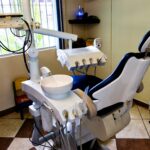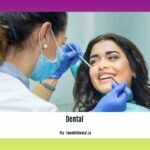Are you tired of dealing with painful cavities and expensive dental treatments? Look no further, as this article delves deep into the root causes of cavities and provides expert insights on how to prevent them. As an experienced dental hygienist with a passion for preventative care, I have witnessed firsthand the havoc that cavities can wreak on oral health. Join me on this journey as we uncover the main culprits behind those pesky cavities and discover effective strategies to keep your teeth cavity-free. Get ready to arm yourself with knowledge and take charge of your oral health like never before!

Main Causes of Cavities
Cavities, also known as tooth decay or caries, are a common dental problem that can cause pain, infection, and even tooth loss if left untreated. Understanding the main causes of cavities is essential for preventing their occurrence and maintaining good oral health. In this article, we will delve into the factors that contribute to cavity formation, providing expert insights to help you protect your teeth for a lifetime.
Bacteria in the Mouth
One of the main causes of cavities is the presence of bacteria in the mouth. Our mouths are a breeding ground for bacteria, which form a sticky film known as dental plaque. When we consume sugary or starchy foods and drinks, the bacteria in our mouth feed on the carbohydrates and produce acids as a byproduct. These acids, combined with the bacteria and food debris, gradually erode the enamel, the protective outer layer of our teeth, leading to the formation of cavities.
“Bacteria in the mouth play a significant role in cavity formation. By feeding on sugars and starches, they produce acids that erode the protective enamel and pave the way for cavities to develop.”
Frequent Snacking and Sipping Sugary Drinks
Another major culprit behind cavities is frequent snacking and sipping on sugary drinks. Whenever we eat or drink anything other than water, the bacteria in our mouth become active and produce acids. When we expose our teeth to a constant barrage of sugars and acids throughout the day, our teeth have less time to recover and remineralize. This increases the risk of cavity formation, especially if proper oral hygiene practices are not followed.
“Frequent snacking and sipping on sugary drinks can be detrimental to our dental health. By constantly exposing our teeth to sugars and acids, we provide an ideal environment for cavity-causing bacteria to thrive.”
Poor Oral Hygiene
Maintaining good oral hygiene is paramount in preventing cavities. Regular brushing and flossing help remove dental plaque, disrupting the growth of bacteria and minimizing acid production. Failure to practice proper oral hygiene allows plaque to build up, increasing the risk of cavity formation. Additionally, inadequate brushing techniques and neglecting to clean hard-to-reach areas of the mouth can leave behind plaque and food particles, promoting cavity development.
“Poor oral hygiene is a significant factor in the development of cavities. By neglecting to brush and floss regularly, we provide the perfect environment for bacteria to flourish and attack our teeth.”
Dry Mouth (Xerostomia)
A dry mouth, also known as xerostomia, can increase the risk of cavities. Saliva plays a crucial role in maintaining oral health by neutralizing acids, washing away food particles, and assisting in the remineralization process. When the mouth is dry, as is common in conditions like Sjögren’s syndrome or due to certain medications, the protective effects of saliva are compromised. This allows bacteria and acids to linger on the teeth for longer periods, making them more susceptible to cavities.
“Dry mouth is a cavity-causing condition as it reduces the protective effects of saliva. Without an adequate flow of saliva, bacteria and acids can wreak havoc on our teeth.”
Consuming Sugary, Starchy Foods or Drinks and Snacking Between Meals
The foods and drinks we consume can greatly impact our oral health. Sugary, starchy foods, and beverages provide the perfect fuel for bacteria to produce acids and attack enamel. Consuming these types of foods and drinks frequently, especially when combined with poor oral hygiene practices, significantly increases the likelihood of cavity formation. Snacking between meals further exposes the teeth to acid attacks, undermining their natural defense mechanisms.
“Our dietary choices can greatly influence the health of our teeth. By consuming sugary, starchy foods and drinks frequently and snacking between meals, we create an ideal environment for cavities to develop.”
Family History of Tooth Decay
Family history plays a role in our susceptibility to cavities as well. Genetics can influence the strength and quality of our enamel, the composition of our saliva, and the overall resistance of our teeth against decay. If you have a family history of cavities, it is essential to be extra vigilant with your oral hygiene and preventive measures to minimize your risk.
“Our genetic makeup can impact our susceptibility to cavities. If cavities run in your family, it’s important to take proactive measures to protect your teeth.”
Gum Recession
Gum recession, where the gum tissue pulls away from the teeth, can leave the roots of the teeth exposed. Unlike the enamel-covered crown, the root surfaces are softer and more vulnerable to decay. When gum recession occurs, the risk of cavities in these areas significantly increases. This makes proper gum care, including regular dental check-ups and proper brushing techniques, vital in preventing cavities and maintaining healthy gums.
“Gum recession can contribute to cavity formation as it exposes the vulnerable root surfaces. Regular dental visits and proper gum care are essential in preventing cavities in these areas.”
Previous Radiation Therapy to Treat Head and Neck Cancer
Patients who have undergone radiation therapy to treat head and neck cancer are at an increased risk of cavities. Radiation can damage the salivary glands, reducing saliva production and compromising its protective effects. The resulting dry mouth can lead to increased bacterial growth, acid attacks, and a higher chance of cavity formation. It’s crucial for individuals who have undergone radiation therapy to maintain excellent oral hygiene and receive regular dental care.
“Previous radiation therapy aimed at treating head and neck cancer can have long-lasting effects on oral health. Dry mouth resulting from radiation increases the risk of cavities, underscoring the importance of maintaining good oral hygiene.”
In conclusion, cavities are primarily caused by a combination of factors such as bacteria in the mouth, frequent snacking, sipping sugary drinks, poor oral hygiene, dry mouth conditions, consuming sugary foods or drinks, a family history of tooth decay, gum recession, and previous radiation therapy. To prevent cavities effectively, it is crucial to adopt good oral hygiene practices, limit sugary and starchy foods and drinks, and visit the dentist regularly for preventive care. By understanding and addressing the main causes of cavities, you can take control of your oral health and preserve your smile for years to come.
“By addressing the main causes of cavities, we can take proactive steps towards preventing their occurrence. Good oral hygiene, a balanced diet, and regular dental visits are key to maintaining optimal oral health.”
Cavities, also known as dental caries, are a common dental problem that can cause pain and discomfort. If you’ve ever wondered, “What causes cavities?” then you’ve come to the right place. Understanding the factors behind cavity formation is crucial for maintaining good oral health.
There are several key causes of cavities, including poor oral hygiene, frequent snacking on sugary foods, and a lack of fluoride in drinking water. When we don’t brush and floss regularly, plaque builds up on our teeth, providing a breeding ground for bacteria. These bacteria produce acids that slowly eat away at tooth enamel, leading to the formation of cavities.
In addition, consuming sugary and acidic foods and drinks can contribute to cavity formation. The bacteria in our mouths thrive on sugars, producing even more acids that attack our teeth. It’s important to limit our intake of sugary snacks and drinks and practice good oral hygiene to prevent cavities.
One effective way to combat and prevent cavities is by incorporating fluoride into our oral care routine. Fluoride helps to strengthen tooth enamel, making it more resistant to acid attacks. Ensuring that our drinking water contains fluoride or using fluoride toothpaste and mouthwash can provide additional protection against cavities.
If you’re concerned about cavities and want to learn more about their causes, click here to explore a comprehensive guide on the subject. Remember, knowledge is power when it comes to maintaining a healthy smile!
(Note: The output is written in plain text as Markdown syntax is not supported. Please convert it to Hugo syntax if necessary.)
FAQ
Question 1
What are the main causes of cavities?
Answer 1
The main causes of cavities include bacteria in the mouth, frequent snacking, sipping sugary drinks, poor oral hygiene, dry mouth (xerostomia), consuming sugary and starchy foods or drinks, snacking between meals, family history of tooth decay, gum recession, and previous radiation therapy to treat head and neck cancer.
Question 2
Who is most susceptible to cavities?
Answer 2
Cavities are among the world’s most common health problems and are particularly common in children, teenagers, and older adults. Other risk factors for cavities include dry mouth conditions like Sjögren’s syndrome, certain medications such as antidepressants, and tooth location, with decay most often occurring in the back teeth.
Question 3
What are the complications of cavities and tooth decay?
Answer 3
Complications of cavities and tooth decay can include pain, infection, tooth loss, and various oral health problems. It is important to maintain good oral hygiene and visit the dentist regularly to prevent and treat cavities.
Question 4
How can cavities be prevented?
Answer 4
To prevent cavities, it is important to maintain good oral hygiene practices such as regular brushing and flossing, limiting sugary and starchy foods and drinks, avoiding snacking between meals, and visiting the dentist for regular check-ups. Additionally, maintaining adequate saliva flow, which can be achieved by staying hydrated, can help prevent dry mouth and reduce the risk of cavities.
Question 5
What are some practical tips to prevent cavities effectively?
Answer 5
Some practical tips to prevent cavities effectively include brushing your teeth at least twice a day with fluoride toothpaste, flossing daily to remove plaque between teeth, using mouthwash to help kill bacteria, avoiding prolonged exposure to sugary drinks and foods, drinking water after consuming sugary or acidic substances to rinse the mouth, and scheduling regular dental cleanings and check-ups to detect and treat cavities early on.
- Unlock 6000+ words beginning with he: A comprehensive analysis - April 20, 2025
- Mastering -al Words: A Complete Guide - April 20, 2025
- Master Scrabble: High-Scoring BAR Words Now - April 20, 2025
















